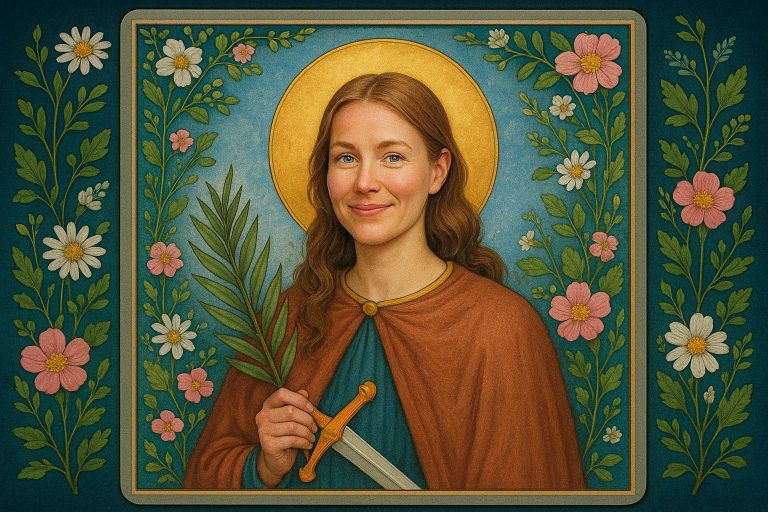
17 Essential Ingredients For Being A Happy Person
People think that they can only be grateful for the things they want, but gratitude is something you cultivate.
Being a happy person isn’t always easy — in fact, sometimes it can feel like a full-time job. In the new Zach Braff film, Wish I Was Here, Zach plays a dad who struggles to find a balance in his family, job, and life as a dad (where he was once just a naive young adult, like we all can be). The journey to find satisfaction is one we’re all on, and sometimes a few key ingredients make the difference between “okay” and “awesome.”
1. The ability to be okay with not always being okay. Happy people aren’t the ones who are happy all the time, they’re the ones who can process through all of their emotions and experiences gracefully, with the knowing that everything is impermanent, everything turns out okay in the end, and feeling negative serves as a signal to you that’s just as important — maybe even more so — than feeling positive about something does.
2. Humility. Being in tune (and okay with) your humanness, being able to say you were wrong, to ask for help, to get medication, to objectively evaluate how your actions factor into an equation. This is the root of being able to change yourself. People are usually blocked from humility out of fear and shame of losing that sense of control that comes with portraying perfection, but it’s a backwards logic that causes infinitely more problems in the end.
3. A few close friends from different parts of your life who fulfill different aspects of your personality. Aside from it being generally unsustainable to have too many friendships, having a few intimate relationships with people who you are completely, unabashedly yourself with is really, really important. These are the people who you can be comfortable around, actually enjoy your life with, who will tell you like it is and won’t placate you into remaining stuck in your old habits.
4. Enough money to pay the bills, save a little and spend a little, and the gratitude that comes with understanding how much happiness money can buy. Money can buy the books you love to read. Money can buy your yoga classes and groceries. It keeps a roof over your head and clothes on your back. It’s not irrelevant, but it’s not extraordinarily important. Once you figure out what makes you really happy (hint: it’s usually not $3,000 in clothes every month) cover your essentials and cultivate gratitude for simply being able to pay the bills, spend some and save some, your whole life will become richer and deeper and more thoroughly enjoyable. Generally speaking, if it isn’t enough now, it won’t ever be.
5. The ability to realize that everything you experience is a reflection of who you are. The second you realize that everything you feel and experience is a reflection of who you are and a manifestation of what you are, you become your own locus of control. You realize that you are in control of your experiences, and that you can choose happiness through matter of course.
6. A health-wellness-mind-body-spirit routine. You are a being within a being, and for the time being, you have to keep it functioning. This isn’t about devoting your entire life to unrealistic and unaffordable health regimens. This is about drinking water. Finding foods that are good for you that you enjoy. Taking a walk with someone you love. Meditating for calmness, reading for clarity, the ability to listen to your body and keep it healthy. It’s hard to enjoy much else until this is done.
7. Always having long term projects going, giving life a sense of balance and forward momentum. This is absolutely not to say you lose touch with the present moment, only that you have something to work on and toward, that you are in tune with what you want to become and that you have enough going on for you that your eggs aren’t ever falling through one basket.
8. The genuine ability to be able to put your phone down, turn your computer off, disconnect from work and enjoy your life. Work-related anxiety is normal and understandable, but balancing your hours pounding your fingers on a keyboard and actually living your life is the make-or-break between happy people and not. It doesn’t matter how much you love your job, you’re not going to perform to your best ability if you’re overworked and burning out, not to mention a main source of work-related anxiety is the fact that you don’t have anywhere else to diffuse your attention.
9. One routine you can go to so you can let off steam and recalibrate yourself — whether that’s working out or meditation or a mantra or even reading a book, whatever. You need to know what to do and where to go when your soul needs soothing. Part of being able to take care of yourself is being able to handle yourself outside of your day-to-day mental and emotional maintenance.
10. A few rough and tumble experiences to date. The best people — the most loving and caring and honest and down-to-Earth — are the ones that have seen some shit in their day. Happy people know suffering more than anybody else. That’s how they see how beautiful their lives are.
11. The understanding that “good” and “bad” are subjective. Once you can release your attachments to what’s “good” and what “should be” and start seeing everything as simply a matter of experience, your life becomes infinitely easier. You realize that the things you once saw as personal failures were your redirects, lessons are more important than being okay all the time, and what’s right to someone is wrong to another. It’s a matter of conditioning and perspective, all of which you can shift once you’re aware of it.
12. The ability to reconnect with the reality of “this too shall pass.” It’s been my mantra for seven years, and it’s the one notion that has consistently, throughout all that time, been a grounding idea for me: the fact that whatever terrors I’m currently feeling will pass — as all the others prior to them have — but also that whatever I have that’s great and lovely and enjoyable will be gone someday too, so it’s at once a comfort that even the worst things don’t last, and a call to remember that neither will the best.
13. Gratitude. People think that they can only be grateful for the things they want, but gratitude is something you cultivate. It’s realizing that every experience serves you in some way, and the simple ability to know where your next meal is coming from, to have access to the Internet to be able to read this, to be literate, are not things everybody is guaranteed in life.
14. A fundamental understanding of the bigger picture — whatever that means to you. If you consistently get lost in the minutiae of your life, you’ll lose sight of what actually matters. “What actually matters,” however, is up to you. You choose how you view the purpose and meaning of the culmination of your years. You decide what’s going to be important to you in the long run. This guidance system keeps you from getting lost in the silly, energy wasting things that don’t matter.
15. The ability to enjoy the little things, your day-to-day life. It’s true what they say: that’s all we really have in the end. You won’t remember the years of your life, you’ll remember singular moments within them. All big things are made from a series of little things put together.
16. Simplicity. Being able to devote your mind, attention and time to just the few things that matter keeps you grounded and satisfied. Clearing your space of the things you don’t need, the people who don’t serve you and the thoughts that weigh on you lets you live a lighter, fuller, happier life. Most things are meant to be simple, we just complicate them in our minds.
17. Purpose. This is the most important fundamental of happiness: a sense of greater purpose. Whether that’s to be the best sister you can, to become a teacher who changes lives, to serve whatever God you believe in… a sense of purpose gives meaning to the sometimes frustrating ins-and-outs of everyday life. ![]()











